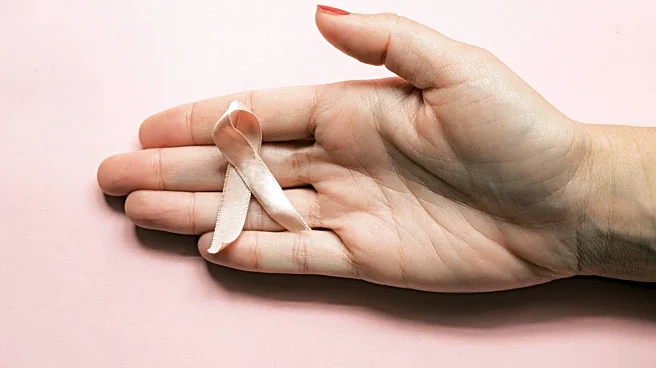What's Happening?
Breast explant surgeries are on the rise as more women opt to remove their implants due to health concerns and personal preferences. The trend is partly driven by awareness of Breast Implant Illness (BII), a condition associated with systemic symptoms like fatigue and brain fog, although not officially recognized as a medical diagnosis. The FDA has acknowledged potential risks, leading to updated safety requirements for breast implants. Cultural shifts and personal experiences, such as those of fitness model Katie Corio, who shared her explant journey on social media, have also contributed to the growing interest in implant removal. Despite the increase, explant surgeries still represent a small fraction of total cosmetic procedures.
Why It's Important?
The rise in explant surgeries reflects a broader shift in societal attitudes towards body image and health. As more women prioritize their well-being over aesthetic standards, the demand for explant procedures could influence the cosmetic surgery industry, prompting a reevaluation of practices and patient care. The trend also highlights the importance of informed consent and patient autonomy in medical decisions, as some women report feeling pressured by surgeons to maintain or replace implants. The potential health implications of implants, including links to BII, underscore the need for continued research and awareness.
Beyond the Headlines
The increase in explant surgeries may signal a cultural shift towards more natural body aesthetics and a rejection of previous beauty norms. This change could have long-term effects on the cosmetic surgery industry, potentially leading to more personalized and patient-centered approaches. Additionally, the discussions around BII and implant safety may prompt regulatory bodies to implement stricter guidelines and monitoring to ensure patient safety. The role of social media in shaping public perceptions and decisions about cosmetic procedures is also significant, as platforms provide a space for sharing personal experiences and influencing trends.











